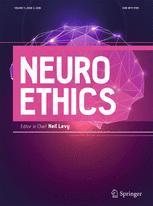Phenomenology of the Locked-In Syndrome: an Overview and Some Suggestions, an article by Vidal
Abstract
There is no systematic knowledge about how individuals with Locked-in Syndrome (LIS) experience their situation. A phenomenology of LIS, in the sense of a description of subjective experience as lived by the ill persons themselves, does not yet exist as an organized endeavor. The present article takes a step in that direction by reviewing various materials and making some suggestions. First-person narratives provide the most important sources, but very few have been discussed. LIS barely appears in bioethics and neuroethics. Research on Quality of Life (QOL) provides relevant information, one questionnaire study explores the sense of personal continuity in LIS patients, and LIS has been used as a test case of theories in “embodied cognition” and to explore issues in the phenomenology of illness and communication. A systematic phenomenology of LIS would draw on these different areas: while some deal directly with subjective experience, others throw light on its psychological, sociocultural and materials conditions. Such an undertaking can contribute to the improvement of care and QOL, and help inform philosophical questions, such as those concerning the properties that define persons, the conditions of their identity and continuity, or the dynamics of embodiment and intersubjectivity.

You can purchase the article at the link below:
Vidal, F. Neuroethics (2018). https://doi.org/10.1007/s12152-018-9388-1


















0 comments
Sign in or create a free account